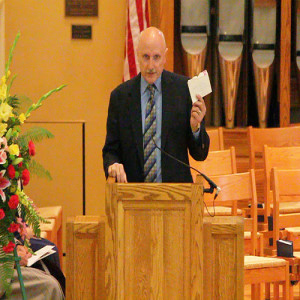Funeral Evolution from Greco-Roman to Early Christian
 Classical Greek and Roman civilizations have preceded medieval Christendom by several centuries. In fact, historical studies assert that the spread of Christianity in Europe during the Dark Ages was a direct transition from Imperial Rome’s downfall as the regional superpower. Therefore, it is not surprising to find out that many of Christian practices have adopted some of the traditions foreign cultures. There is a striking resemblance between classical Greco-Roman philosophy and Christian doctrine. One of the best areas to look at them is their respective funeral services:
Classical Greek and Roman civilizations have preceded medieval Christendom by several centuries. In fact, historical studies assert that the spread of Christianity in Europe during the Dark Ages was a direct transition from Imperial Rome’s downfall as the regional superpower. Therefore, it is not surprising to find out that many of Christian practices have adopted some of the traditions foreign cultures. There is a striking resemblance between classical Greco-Roman philosophy and Christian doctrine. One of the best areas to look at them is their respective funeral services:
From eulogies to dirges
The art of eulogy can be traced back as far as the middle era of the Roman Empire. However, post-mortem poems and speeches are reserved for dignitaries of Roman society. It wasn’t until the early bloom of the Roman Catholic Church that dirges came to existence. The word “dirge” came from the excerpt of a very early responsorial psalm of the choir singing, dirige, domine, Deus meus, in conspectus tuo viam meam (Direct my way in your sight, O Lord my God). This chant is especially intended for memorial services the church dispenses.
From funeral pyres to caskets
Funeral pyres can be traced as far as ancient Greece, especially accounted during the Trojan War period. An honored deceased will be washed and embalmed before being cremated. This practice was retained even during the earlier half of the Roman period. Somewhere during the later centuries cremation fell out of fashion. The common attitudes regarding the afterlife have dramatically changed due to the emergence of other regional beliefs, especially with the gradual rise of Judeo-Christian faiths.
From libations to indulgences
Paying for one’s welfare in the afterlife was no longer in the ancient times. In fact, the Ancient Greeks believed that the dead must have two coins placed on each eye socket before having one’s corpse burned. These two drachmas (Greek currency) are the exact amount of payment required for the afterlife boatman Charon to transport souls across the River Styx (comparable to purgatory or hell). In medieval Christendom, priests demand indulgences from its subjects. Originally established as a penalty fee for every transgression, it transpired into a grand scheme of “buying the stairway to heaven”. Until the Protestant movement successfully abolished this dogma, it was one of the Catholic Church’s heinous corrupt systems exploiting the illiterate masses.


